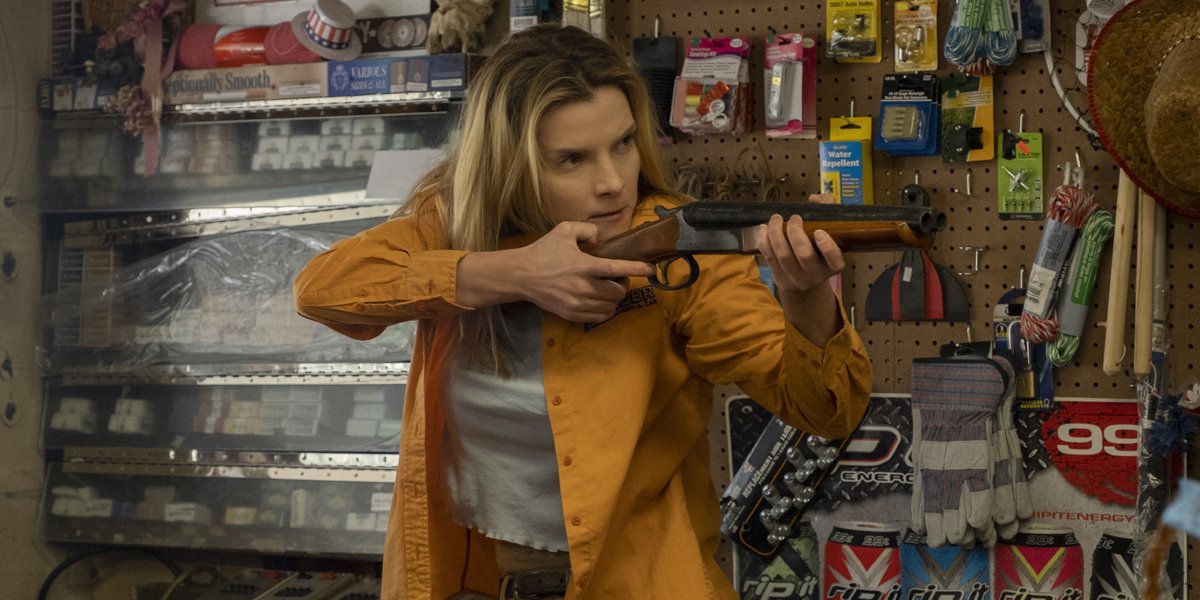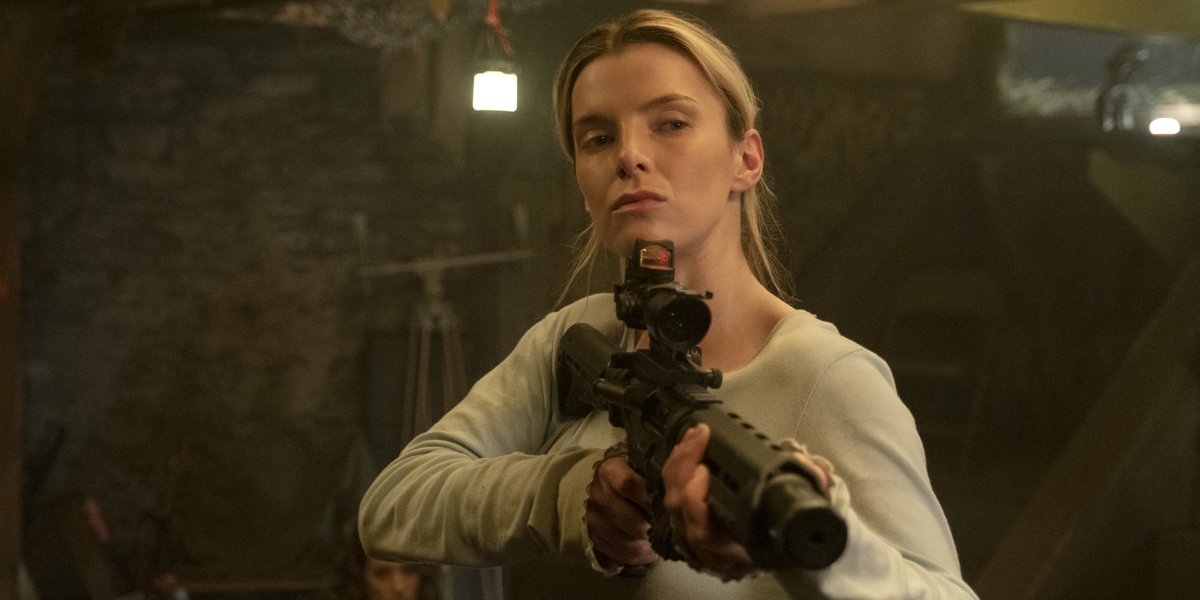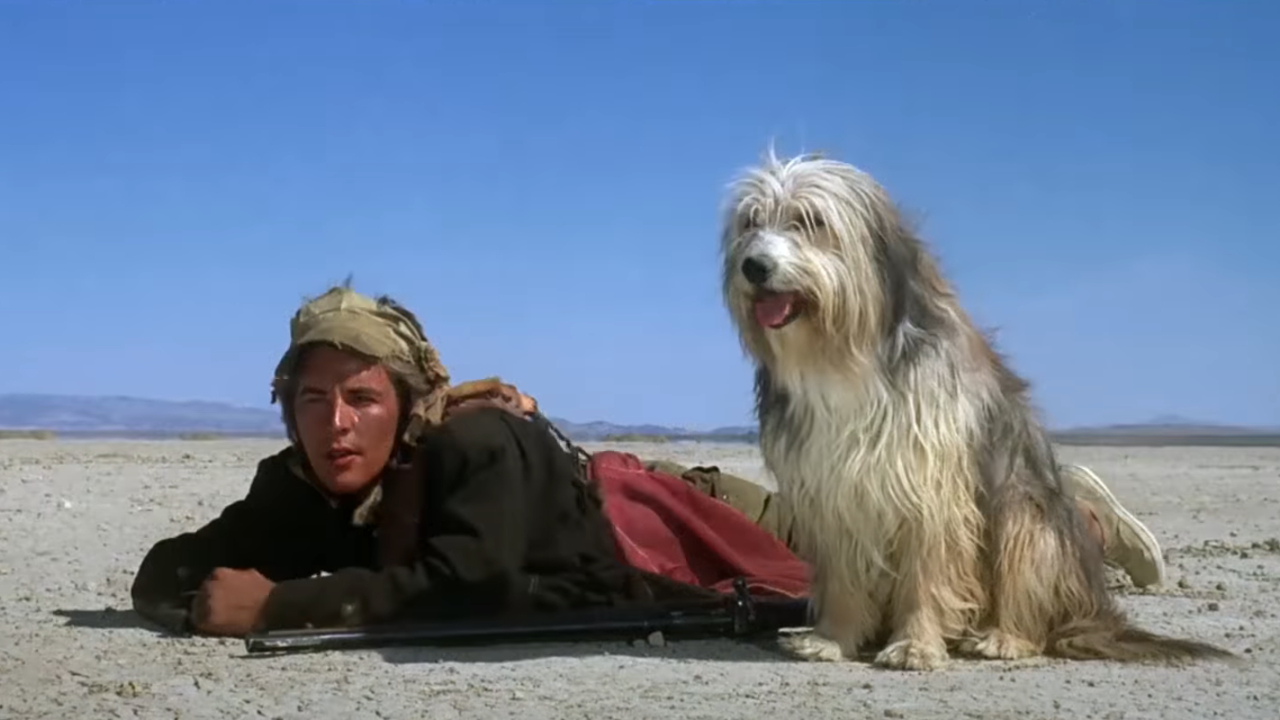The Hunt Totally Flips A Classic Fable On Its Ear, And Damon Lindelof Explains Why

SPOILER WARNING: The following article contains major spoilers for The Hunt. If you have not yet seen the film, proceed at your own risk!
Toward the end of the second act in Craig Zobel’s The Hunt, Betty Gilpin’s Crystal begins to tell Wayne Duvall's Don a bedtime story her mother use to recite when she was younger: the Jack Rabbit and the Box Turtle. At first it seems like a tale that we’re all heard a thousand times before, essentially a relabeled version of the Tortoise and the Hare, but it’s when she gets to the end that we learn that her version is a tad different. Specifically, it adds that the Jack Rabbit is a bit of a sore loser, and isn’t above some bloody vengeance.
It’s very much a surprising take on the familiar, and one that I couldn’t get out of my head after seeing the film. Thus, I felt compelled to ask about it when I attended the Los Angeles press day for The Hunt earlier this month, and I learned some fantastic insight about the story from both Betty Gilpin and co-writer/producer Damon Lindelof:
The classic moral of the Tortoise and the Hare is “slow and steady wins the race” – which is to say that thoughtful hard work will get you everywhere you want to go – but in the writing of The Hunt Damon Lindelof and Nick Cuse essentially confronted the concept with some rather cynical questions. There are not only holes to be poked in the classic fable, but it also does leave you wondering what happens next.
In the original story, the Tortoise only manages to win his race against the Hare because the latter is so overconfident that he takes a nap mid-race… but Damon Lindelof and Nick Cuse found themselves wondering why the Hare, who never loses, would just accept the results. Hence, in Crystal’s version the Jack Rabbit doesn’t just sit back and examine his flaws, but instead busts down the Box Turtle’s door and kills his opponent with a hammer.
Referring to the classic as having a “horrible moral,” Damon Lindelof explained that it’s only really applicable if you’re racing against a particular personality type – and if that’s the case, there’s going to be consequences:
In the real world, that person, if they lost, there would be vengeance. And so I'm always curious what happens after the fable. So if anything, that scene illustrates what happens when you wag your finger at someone and try to teach them a lesson, your finger might find itself getting bitten off.
That last bit in particular is what makes the new take on the tale fit ever so perfectly with the larger themes of The Hunt. At the end of the film, it’s revealed that “Manorgate” was essentially designed as a contrapasso punishment for online conspiracy theorists who spread the original lie of Manorgate to begin with. Just as the Box Turtle wants to teach a lesson, Hilary Swank’s Athena and her fellow scorned liberal elite CEOs establish the Hunt, but Crystal the Jack Rabbit bites back (as directly illustrated via the bunny Crystal sees following her deadly battle at the end of the movie).
Your Daily Blend of Entertainment News
A perfect extension of this, Betty Gilpin noted that she saw a great deal of who Crystal is reflected in that monologue. The actress noted that it is part of her method to look for the pure drama in the work that she is doing, and honing into something as classic as an Aesop Fable advanced that work:
For every character I try to think of, no matter what the genre is, finding the Greek circumstances. I like to play high stakes, even if those stakes are sort of muffled to be in a scene about laundry, of which I do many as a lady... The Jack rabbit story to me is about a feeling that is similar to that, where if you feel like you're supposed to be a revolutionary or the hero in your own story, and then somewhere along the way you lose your way or the circumstances of your life don't match those Greek circumstances that you feel inside.
In her everyday life, Crystal is essentially a Jack Rabbit that doesn’t even get the chance to race, stuck listening to complaining customers at the car rental service – but that all changes when she is drugged and kidnapped by Athena and her pals. Whether it was a mistake or not is left up to the viewer, but regardless the heroine locks into a real sense of purpose when she is given the opportunity to fight for her life. Said Gilpin,
I think a lot of us feel that way, where we're bred to be warriors, and then you're sitting in traffic, or your iPhone update has erased all your contacts and you're like, 'What embarrassing circumstances for a gladiator like myself to be in.' I think that this movie, however horrifying the circumstances are, it's really sort of Crystal's chance to actualize in a really demented way!
Co-starring Emma Roberts, Ike Barinholtz, Justin Harley, Glenn Howerton, Amy Madigan, Ethan Suplee, Macon Blair, and more, The Hunt is now playing in theaters everywhere. Stay tuned here on CinemaBlend for more about the film.

Eric Eisenberg is the Assistant Managing Editor at CinemaBlend. After graduating Boston University and earning a bachelor’s degree in journalism, he took a part-time job as a staff writer for CinemaBlend, and after six months was offered the opportunity to move to Los Angeles and take on a newly created West Coast Editor position. Over a decade later, he's continuing to advance his interests and expertise. In addition to conducting filmmaker interviews and contributing to the news and feature content of the site, Eric also oversees the Movie Reviews section, writes the the weekend box office report (published Sundays), and is the site's resident Stephen King expert. He has two King-related columns.

